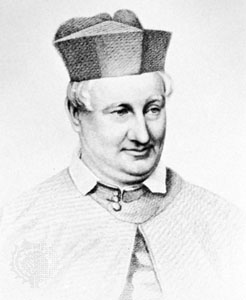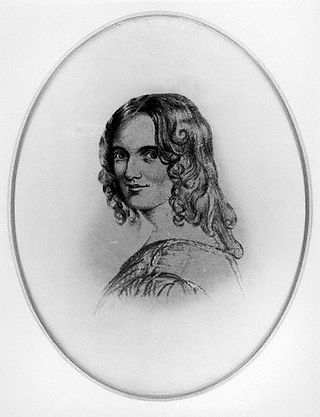Related Research Articles

A hymn is a type of song, and partially synonymous with devotional song, specifically written for the purpose of adoration or prayer, and typically addressed to a deity or deities, or to a prominent figure or personification. The word hymn derives from Greek ὕμνος (hymnos), which means "a song of praise". A writer of hymns is known as a hymnist. The singing or composition of hymns is called hymnody. Collections of hymns are known as hymnals or hymn books. Hymns may or may not include instrumental accompaniment.

William Williams, Pantycelyn, also known as William Williams, Williams Pantycelyn, and Pantycelyn, is generally seen as Wales's premier hymnist. He is also rated among the great literary figures of Wales, as a writer of poetry and prose. In religion he was among the leaders of the 18th-century Welsh Methodist revival, along with the evangelists Howell Harris and Daniel Rowland.

Charles Wesley was an English leader of the Methodist movement. Wesley was a prolific hymnwriter who wrote over 6,500 hymns during his lifetime. His works include "And Can It Be", "Christ the Lord Is Risen Today", "Love Divine, All Loves Excelling", the carol "Hark! The Herald Angels Sing", and "Lo! He Comes With Clouds Descending".

A hymnal or hymnary is a collection of hymns, usually in the form of a book, called a hymnbook. They are used in congregational singing. A hymnal may contain only hymn texts ; written melodies are extra, and more recently harmony parts have also been provided.

Frederick William Faber was a noted English hymnwriter and theologian, who converted from Anglicanism to Roman Catholicism in 1845. He was ordained to the Catholic priesthood subsequently in 1847. His best-known work is the hymn "Faith of Our Fathers".

"Love Divine, All Loves Excelling" is a Christian hymn by Charles Wesley on Christian perfection. Judging by general repute, it is among Wesley's finest: "justly famous and beloved, better known than almost any other hymn of Charles Wesley." Judging by its distribution, it is also among his most successful: by the end of the 19th century, it is found in 15 of the 17 hymn books consulted by the authors of Lyric Studies. On a larger scale, it is found almost universally in general collections of the past century, including not only Methodist and Anglican hymn books and commercial and ecumenical collections, but also hymnals published by Reformed, Presbyterian, Baptist, Brethren, Seventh-day Adventist, Lutheran, Congregationalist, Pentecostal, and Roman Catholic traditions, among others including the Churches of Christ. Specifically, it appears in 1,328 of the North American hymnals indexed by the online Dictionary of North American Hymnology, comparable to Newton's "Amazing Grace" (1,036), Wesley's "O for a Thousand Tongues" (1,249), and Watts' "When I Survey the Wondrous Cross" (1,483), though still well short of Toplady's "Rock of Ages" (2,139) or Wesley's own "Jesu, Lover of my Soul" (2,164).
Prevenient grace is a Christian theological concept that refers to the grace of God in a person's life which precedes and prepares to conversion. The concept was first developed by Augustine of Hippo (354–430), was affirmed by the Second Council of Orange (529) and has become part of Catholic theology. It is also present in Reformed theology, through the form of an effectual calling leading some individuals irresistibly to salvation. It is also in Arminian theology, according to which it is dispensed universally in order to enable people to respond to the offer of salvation, though it does not ensure personal acceptance.

Church music is Christian music written for performance in church, or any musical setting of ecclesiastical liturgy, or music set to words expressing propositions of a sacred nature, such as a hymn.

Christian poetry is any poetry that contains Christian teachings, themes, or references. The influence of Christianity on poetry has been great in any area that Christianity has taken hold. Christian poems often directly reference the Bible, while others provide allegory.

Eucharistic theology is a branch of Christian theology which treats doctrines concerning the Holy Eucharist, also commonly known as the Lord's Supper. It exists exclusively in Christianity and related religions, as others generally do not contain a Eucharistic ceremony.
Women as theological figures have played a significant role in the development of various religions and religious hierarchies.

Sarah Fuller Flower Adams was an English poet and hymnwriter. A selection of hymns she wrote, published by William Johnson Fox, included her best-known one, "Nearer, My God, to Thee", reportedly played by the band as the RMS Titanic sank in 1912.

Charlotte Elliott was an English poet, hymn writer, and editor. She is best known by two hymns, "Just As I Am" and "Thy will be done".
Charitie Lees Smith was an Anglican Irish American hymnwriter. Her hymns, well known in England and Ireland, were included in Lyra Sacra Hibernica, Ryle's Spiritual Songs, Lyra Britannica, and Times of Refreshing. Additionally, she wrote various religious pieces for periodicals.

Wesleyan theology, otherwise known as Wesleyan–Arminian theology, or Methodist theology, is a theological tradition in Protestant Christianity based upon the ministry of the 18th-century evangelical reformer brothers John Wesley and Charles Wesley. More broadly it refers to the theological system inferred from the various sermons, theological treatises, letters, journals, diaries, hymns, and other spiritual writings of the Wesleys and their contemporary coadjutors such as John William Fletcher.
Harriet Auber was an English poet and hymnist. She is best remembered for her collection The Spirit of the Psalms, published in 1829, and for her hymn "Our blest Redeemer, ere he breathed," a treatise on the Holy Spirit and his work.
Pacificus Baker, O.F.M. (1695–1774), was an English Minorite friar and noted Catholic spiritual writer of the 18th century.
Phoebe Hinsdale Brown was one of the first notable American woman hymnwriters, and the first American woman to write a hymn of wide popularity, "I love to steal awhile away".